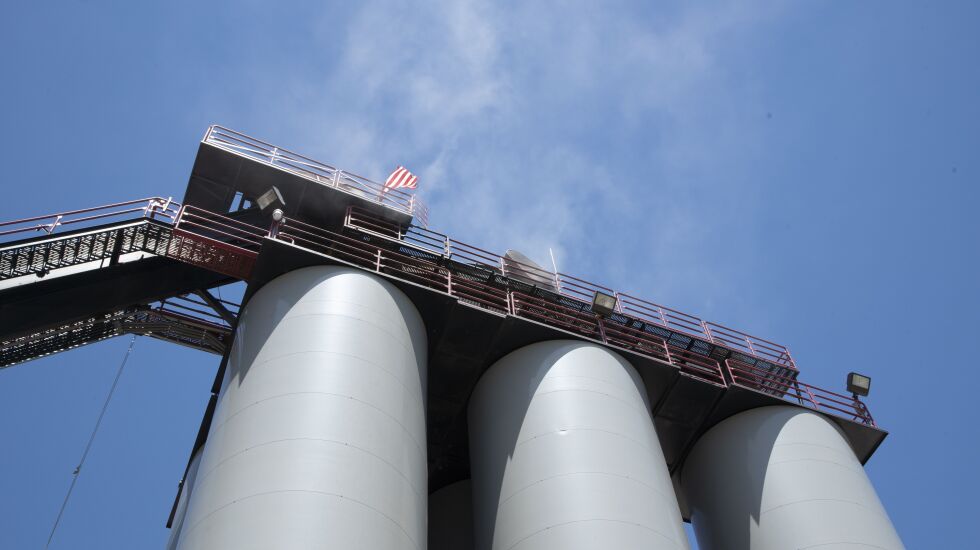
A McKinley Park asphalt maker that has been the source of hundreds of neighbor complaints settled allegations of air pollution and dust control violations as it was awarded new city contracts last week.
MAT Asphalt agreed to pay the city $20,000 and promptly begin work to improve dust and odor controls at its 2055 W. Pershing Road operation, according to a settlement document finalized last week.
By entering into the agreement, MAT admits no wrongdoing, which is important as it just won city contracts to supply asphalt for road improvements.
On Friday, the same day the settlement agreement was signed by Chicago Public Health Commissioner Allison Arwady, MAT was awarded up to $141 million in contracts to provide city street crews with asphalt to fill potholes and other work.
Under new rules for city contracts, all asphalt suppliers will have to adhere to new environmental guidelines but MAT will be required to put controls in place on a quicker timeline.
For instance, a plan for odor control must be delivered to the city by the end of this month and necessary equipment will need to be in place within the next year. An outline for dust control measures is due even sooner.
All asphalt plants that seek city work must agree to put in additional pollution controls by 2025, recently revised city rules state.
Two other Southwest Side asphalt makers, Ogden Avenue Materials and Reliable Asphalt, were also awarded contracts.
“In response to the top community concerns, [the health department] mandated that MAT Asphalt must also install stronger odor controls on a more aggressive schedule than otherwise required and implement more detailed dust control measures,” the city said in a statement.
Asphalt plant pollution is among the many environmental justice challenges that City Hall faces as incoming Mayor Brandon Johnson prepares to replace Mayor Lori Lightfoot.
MAT was fighting tickets for two alleged violations in 2020 and another from last August. The most recent ticket stemmed from a visit to MAT in which city inspectors reported odors ranging from “faintly detectable to strong and overwhelming depending on the strength of the wind.”
In a statement, MAT co-owner Michael Tadin Jr. said that his operation has already begun steps toward pollution control.
“We commend the City of Chicago for strengthening environmental controls on other asphalt facilities, which will benefit everyone throughout the area,” he said.
The city’s enforcement of air pollution laws has been criticized by community groups such as Neighbors for Environmental Justice in McKinley Park, which was formed after MAT Asphalt opened in 2018.
That group applauded the city settlement requiring actions at MAT, though said government officials need to do more to safeguard communities already overburdened with pollution.
“We are glad the city is requiring new pollution controls, but we need to stop reacting to harm and start preventing it,” the group said in a statement.
Brett Chase’s reporting on the environment and public health is made possible by a grant from The Chicago Community Trust.





.jpg?w=600)

